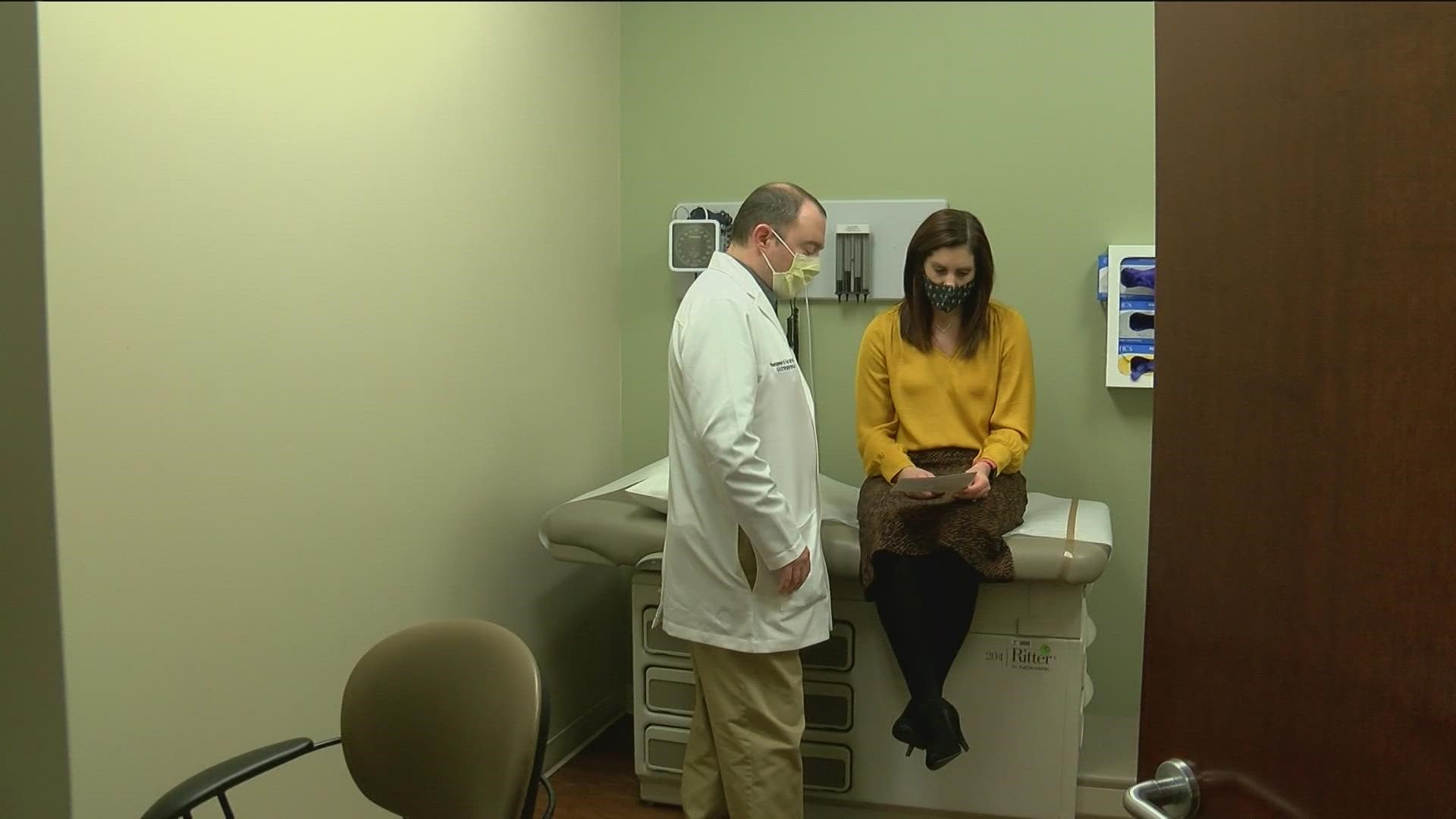TOLEDO, Ohio — At WTOL 11, we take pride in telling your stories each day.
Sometimes, we share ours as well, in hopes of connecting with you at home.
I was first diagnosed with Crohn's Disease about eight years ago, shortly after moving to Toledo. I'm opening up about this disease I've been managing for almost a decade to raise awareness during Crohn's & Colitis Awareness week.
It started as pretty severe abdominal pain that wouldn't quit, then, diarrhea. I couldn't eat anything but chicken broth and saltines.
Finally, after weeks of worsening symptoms, I spiked a fever and decided to go to the hospital. It was Crohn's. But what is Crohn's?
"Crohn's and Ulcerative Colitis are two inflammatory bowel diseases," UTMC gastroenterologist Dr. Benjamin Hart, my GI, said. "These are thought to be an autoimmune process that is really involving the really significant inflammation and ulceration, often of the colon and in the setting of Crohn's, can be through the entire GI tract."
So, it's not just a stomach ache.
Both are chronic diseases with no cure and Hart said there's no known cause, so prevention isn't an option.
And treating IBD is tricky as no patient is the same.
"Options have gone up exponentially over the last few years, but it's still a little bit of a learning curve of what's going to work for each patient because not all of these meds work on each patient," Hart said.
Luckily I found a drug that worked for several years and made me feel much better. It wasn't simply a pill, but what's called a biologic, which required an infusion at the hospital every two months.
I even carried and delivered a healthy baby girl and enjoyed a typical life as a new mom.
Then, 2020 happened. I fell out of remission and back into the throes of disease.
"There was a lot of inflammation," Hart said. "I just remember doing your procedure and being like, 'we have to do something.'"
Right now, about three million Americans manage Inflammatory Bowel Disease, and many are diagnosed as adolescents.
The support I received along the way, which I got from my husband, has been paramount in weathering the disease.
Management of Crohn's and U.C. means countless lab draws, stool samples and colonoscopies. It's all to avoid serious complications, like colon cancer, fistula and strictures.
"If those things develop, those things can be pretty severe and potentially life-threatening," Hart said.
Thankfully, I found another medication that has worked: a twice-monthly injection.
And I received a clean bill of health this week from Doctor Hart.
"The inflammation was completely gone. Everything looked completely healed," Hart said.
I'm so grateful for the encouragement I've received from viewers of Good Day and everything WTOL 11 has done over the years.
During Crohn's and Colitis Awareness Week, Hart said do not ignore your symptoms. See a GI.
"See if they would at least do an evaluation or try and figure out what's going on. The last thing we'd want do is have you end up with something that's a severe issue," he said.

